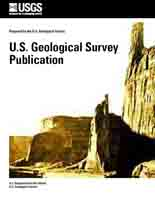Changes in the topography and ecology of the San Francisco Bay Estuary ('Estuary') during the past 200 years have resulted in the loss of nearly 80 percent of the historical salt marsh in the region. Currently, numerous projects are being undertaken by federal, state, and local governments in an attempt to restore wetland habitat and ecosystem function at a number of locations within the Estuary. Much information is needed concerning the historical topographic and ecologic characteristics of the Estuary to facilitate these restoration efforts.
This report presents previously unpublished vegetation and elevation data collected in 1983 by the California State Lands Commission at Corkscrew marsh, Bird Island, and Palo Alto Baylands, all located in South San Francisco Bay. These precise and detailed elevation and plant surveys represent a snapshot of South Bay flora before invasion by the Atlantic smooth cordgrass, Spartina alterniflora. Such precise elevation data are rare for relatively undisturbed marshes in the San Francisco Bay; publication of these historical data may facilitate wetland restoration efforts.
Marsh-surface and tidal-channel elevations were determined at a total of 962 stations by differential leveling to established tidal benchmark stations at each site and referenced to Mean Lower Low Water (MLLW) relative to the National Tidal Datum Epoch (1960-78). In addition, presence or absence of nine salt marsh species, percentage plant cover, and percentage bare soil were recorded for 1-square meter quadrats at 648 stations where elevations were determined.
Collectively, over the three sites, salt marsh vegetation ranged in elevation from 0.98 to 2.94 m above MLLW. S. foliosa and Salicornia virginica were the most frequently observed plant species. Atriplex patula, Deschampsia cespitosa, and Limonium californicum were each recorded at only one of the three sites.


